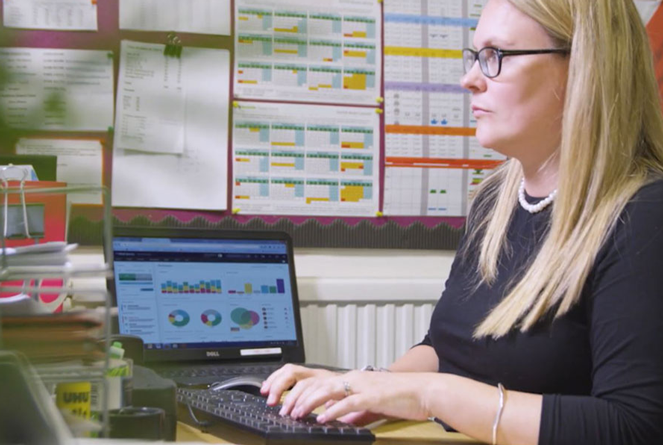Mental health has become more prevalent than ever in recent years, but while much attention has fallen on adults and their work/life balance, disruption to education and social opportunities has put pressure on children, too. In the last three years alone, research shows the likelihood of a young person having a mental health problem has increased by 50%.
This blog takes a closer look at mental health in children and young people, highlighting the most common signs of mental health issues and ways to protect their well-being. Raising awareness of these issues is key to supporting and protecting their mental health.

What is children’s mental health?
Mental health, in the context of how it affects children, refers specifically to their emotional and social development, and how well-equipped they are to cope with any problems that come their way.
Those who are in a good mental state generally find it easy to function well in all aspects of their life: at home, at school, with their friends and in other social interactions. Those who don’t, however, find it more difficult to deal with any fears or issues they have, leading to distress and disruptive behaviour.
Of course, no two children are the same, and every child will develop and react to events in different ways, depending on their characteristics. This is why monitoring children for their mental well-being is so important.
How do mental health difficulties affect children and young people?
Emotional or behavioural problems affect around one-eighth of children and young people. Some issues will be relatively low-level, but some will require professional intervention so that they’re given the support they need. Signs of mental health issues vary significantly, but can commonly include:
- Socialising: withdrawing from activities they normally enjoy or from normal social interactions
- Self-harm: inflicting injuries on themselves (or talking about doing so), and/or talking about death and suicide
- Behaviour: uncontrollable and irrational behaviour, being particularly irritable, or major mood swings
- Diet: changing eating habits and patterns, along with weight loss or stomach aches
- Sleep: lack of sleep or irregular sleeping patterns
- School participation: skipping school, declines in achievement, and difficulty concentrating in class
Many of the above issues can be caused by mental or behavioural disorders, which can be catered for and treated if diagnosed. These can include:
- Depression: this is more common in recent years, and is particularly common among teenagers
- Post-Traumatic Stress Disorder (PTSD): caused by being the victim of violence or abuse, or witnessing a traumatising event
- Generalised Anxiety Disorder (GAD): this anxiety is particularly caused in younger people by starting school, or moving from one school to another
- Attention Deficit Hyperactivity Disorder (ADHD): children who behaving impulsively, are overactive, and who have difficulty paying attention while in class
- Eating disorders: issues such as anorexia and bulimia are more common in girls, especially in teenage years, and can affect them physically as well as mentally

Treating mental illness in children and young people
If a child is suffering from a mental disorder, then it’s vital that all those involved in their care come together to provide the best support and treatment. This includes doctors, teachers, parents, other family members, extra-curricular activity leaders, and therapists where appropriate. Treatment can come in the form of medication, but in many cases, psychotherapy that encourages children to talk about their problems and learn how to respond to them in the right ways can be just as effective. But in any case, early diagnosis is important.
At a more day-to-day level, there are lots of things that parents and teachers can do to support better mental health in the children in their lives:
- Listen and consider: check up on how they’re doing regularly, so that they feel they have someone to talk to, and listen without judgement so that they feel valued
- Get involved in their interests: help them stay active and creative with the activities they enjoy the most, and stay involved in whatever is most important to them
- Develop routines: a structure around school, meals, sleep, school, homework and exercise can be hugely beneficial to giving young people mental stability
- Understand difficulties: keep an eye on their emotions and behaviour, and understand their feelings, so you can help them work through their problems
Helpful resources for parents and caregivers
For further information on how to help children and young people with their mental health, there are several reference points to explore, including YoungMinds, NHS mental health services for young people, and in the case of an emergency, NHS mental health helplines.


/Primary%20school%20.jpg?width=2000&name=Primary%20school%20.jpg)








.png?width=940&height=788&name=Lingfield%20College%20Case%20Study%20(5).png)
-1.png?width=1000&height=833&name=National%20Association%20of%20Head%20Teachers%20(3)-1.png)
-3.png?width=1080&height=1080&name=Untitled%20design%20(10)-3.png)






